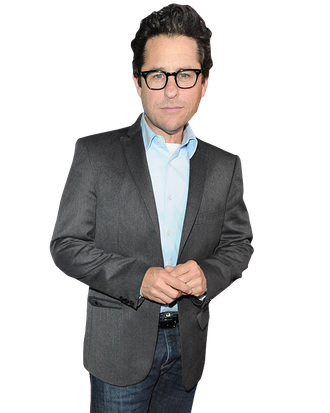
As the face of Bad Robot Productions, J.J. Abrams has a hand in Person of Interest, Cloverfield, the forthcoming Alcatraz TV series, the Star Trek reboot, and Super 8 ÔÇö the latter two of which he directed. Oh, and Lost. Did we mention Lost? Have you ever heard of this little TV show called Lost? As he continues to spread himself into all corners of the sci-fi spectrum (Super 8 recently came out on Blu-ray), we chatted with Abrams about summer blockbusters, the proper way to unravel a mystery, and LostÔÇÖs looming shadow.
Super 8 isnÔÇÖt your first blockbuster summer film. What attracts you to the genre?
While IÔÇÖve always been a fan of the mainstream, big, fun movies, IÔÇÖve also been a fan of the pure weird, smaller ones. I happen to have directed or written films that have come out during the summer more than not, although Mission: Impossible, which we produced, comes out next month. The release date ends up being a little bit beside the point. Though, again, thereÔÇÖs nothing more fun for me than going to a really great summer blockbuster, where the audience is screaming and having a great time.
A lot of your films are larger than life: aliens, monsters, etc.
I can say I do love spectacle. I love when movies have a kind of aspect to them that is hyper-real and something you couldnÔÇÖt see just anywhere. But thatÔÇÖs not to say that my interest in movies is only relegated to films that have aliens in them. My favorite movie is still Philadelphia Story. The spectacle of that film was the dialogue and the performances.
Super 8 has been compared a lot to Cloverfield, specifically the arc of not showing the monster until the very end. What do you make of the comparisons?
I think that theyÔÇÖre right; there probably are some aspects that are similar. To me, the story was a very different one, but I canÔÇÖt deny that there are monsters in both movies. But I feel like while Cloverfield was definitely an experiment about trying to do a sort of verit├® version of a Godzilla movie. Super 8 is definitely a film about childhood, and first love, and loss.
How do you strike the balance in film and TV between revealing too much information and not enough? IÔÇÖm sure this came up all the time in talking about Lost.
IÔÇÖm sure thereÔÇÖs a lot of people who would say, having seen Super 8, that I donÔÇÖt [have a good sense]. But what I try to do is tell stories as subjectively as possible so that the experience the audience is having is what the characters are having. And typically speaking, that means drawing someone into a story. Certainly you can begin a movie in the very first scene: a guyÔÇÖs brushing his teeth and he closes the medicine cabinet, and in the mirror he sees a zombie standing right behind him, and he turns around ÔÇö you could just jump right into scaring the hell out of people, as some stories have done. And then there are other stories where itÔÇÖs sort of a, ÔÇ£This is real life, this is normal life,ÔÇØ and then events start to happen. But if you look at any kind of story ÔÇö monster movie, love story, anything ÔÇö if you begin the story with the most heightened experience, itÔÇÖs hard to know where you go with it.
What do you mean when you say that according to some people, you donÔÇÖt have that sense?
IÔÇÖm just saying that IÔÇÖm sure that some people donÔÇÖt think that my technique works for them, and that the way I reveal things is effective. All I can do is do the thing that feels right to me. But IÔÇÖm sure that there are legions of people, who, whether theyÔÇÖve seen Lost, or Cloverfield, or Super 8, they feel like, ÔÇ£Oh, thatÔÇÖs bullshit. The wait is too long; you should do it much sooner; it feels gimmicky.ÔÇØ When you ask a question about how you find that perfect balance, I donÔÇÖt want to pretend like I know what that perfect balance is.
Alcatraz comes out soon, joining Person of Interest ÔÇö two Bad Robot shows on at the same time. With both these projects out, do you feel like youÔÇÖve escaped the shadow of Lost?
Well, IÔÇÖm working with Damon Lindelof right now on the new Star Trek. And whatÔÇÖs great is when we start talking about story, Lost will come up because weÔÇÖve both been through that together. He ran the show for six years. I left the day-to-day stuff by the end of the first season, but my association with that show is something that is incredibly gratifying. IÔÇÖm thrilled I was involved in it in any way, and grateful to Damon for running that show, I think brilliantly, for six years. But itÔÇÖs very difficult to ever do something when youÔÇÖre thinking about something else youÔÇÖve done. So I donÔÇÖt really dwell on any of the movies. Even working on Star Trek right now, we cannot in any way rely on the first Star Trek. We canÔÇÖt think, Okay, weÔÇÖve got it in the bag, everyone loves these characters. We have to start over in a way.

